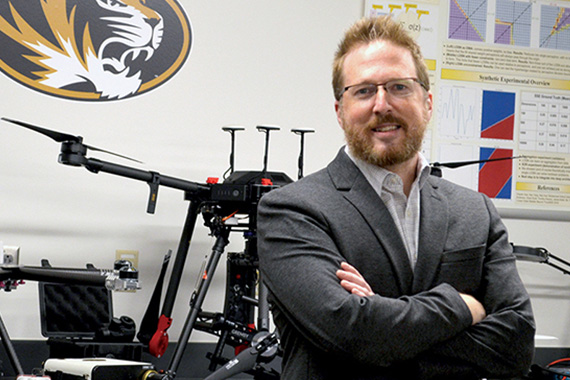
AI innovator mentors next generation while breaking new ground
AI is at the forefront of everyone’s mind, and Associate Professor Derek Anderson is at the forefront of AI.
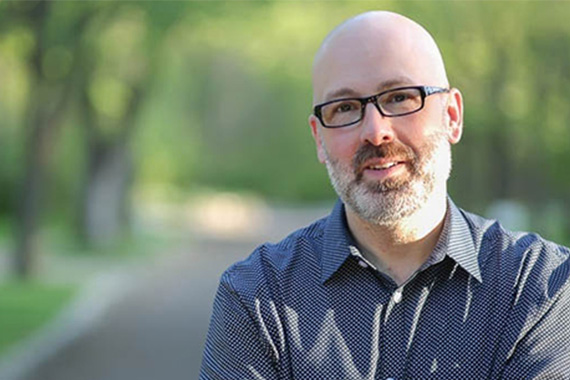
Mizzou Engineer helping develop badging system for open source software
A Mizzou Engineer is helping develop a new badging system that will give those in the open source software community an easy way to gauge a project’s diversity, equity and inclusivity.
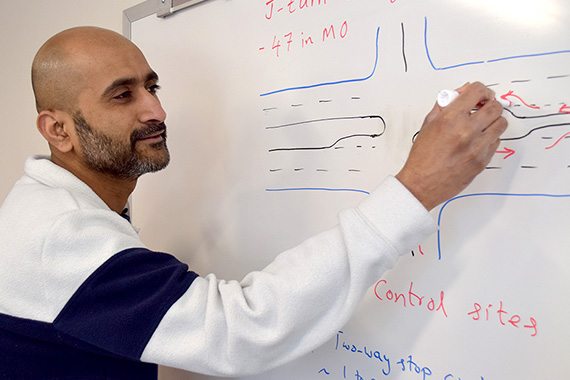
Civil Engineers assessing effectiveness of J-turn intersections in Missouri
A Mizzou Engineering team has been tasked with assessing the effectiveness of J-turn intersection designs across Missouri’s state highway system.
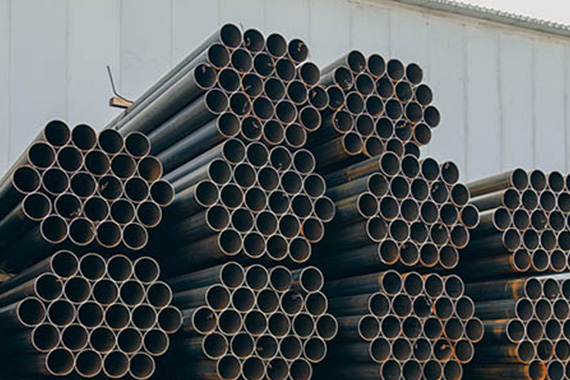
Mizzou team developing AI-based tool to predict trends in steel prices
A multidisciplinary research team at Mizzou is harnessing the power of artificial intelligence (AI) to develop a tool that can predict the trend in steel prices.
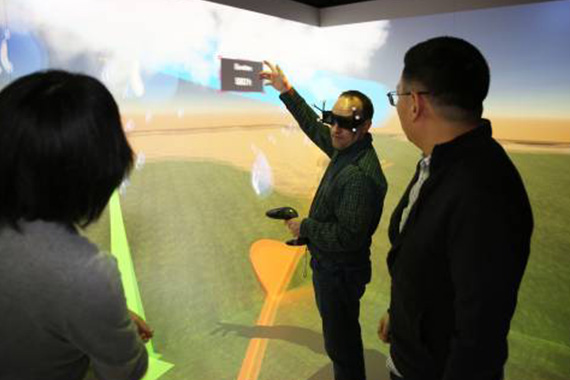
Mizzou Engineering helps provide immersive weather experience
An exciting collaboration between three University of Missouri experts is opening the door to a unique learning opportunity for environmental sciences students, specifically those interested in studying weather.
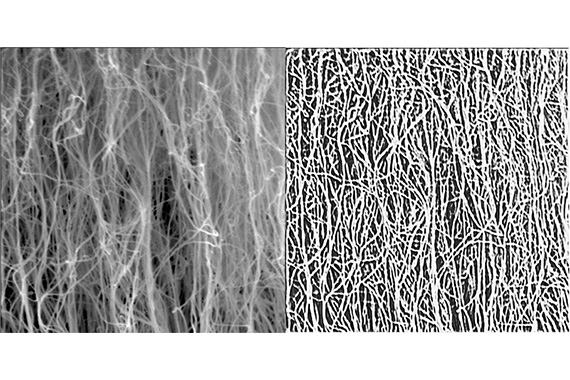
Team develops technique to segment carbon nanotube forests in images
Mizzou Engineering researchers are another step closer to controlling the properties of carbon nanotubes growing in mass quantities.
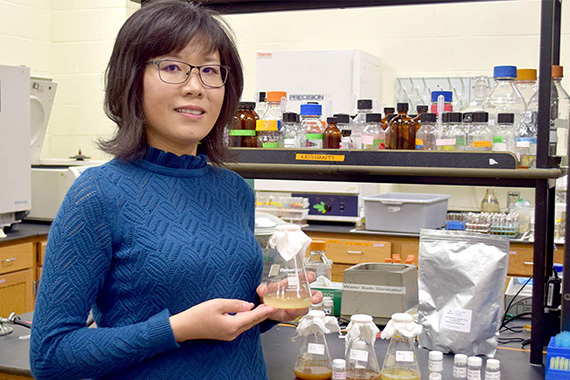
Mizzou Engineering researcher helps turn food wastes into biodegradable plastics
A Mizzou Engineer is helping researchers at Virginia Tech develop a process to convert food wastes into biodegradable plastics. Caixia “Ellen” Wan is an associate professor of chemical and biomedical Engineering and a bioprocess engineer. She’s part of a team that received a $2.4 million grant from the U.S. Department of Agriculture (USDA) to upscale bioplastic production with the goal of replacing petroleum-based plastics while also keeping leftovers out of landfills.
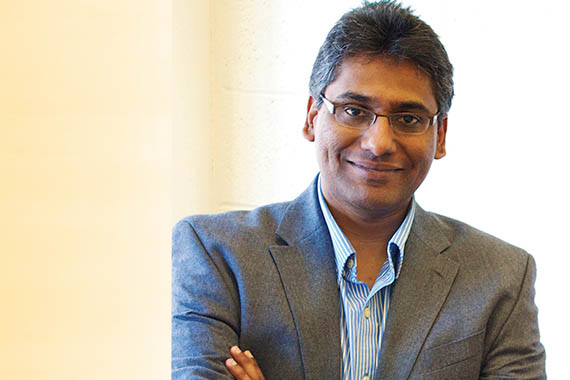
Calyam, collaborators using AI to assist local news organizations
Each day, local newsrooms across the United States are inundated with a myriad of press releases and story pitches competing for attention from a staff already strapped for time. Prasad Calyam, a professor of electrical engineering and computer science, and his team are among an elite group of researchers working to integrate automation and artificial intelligence to help local news organizations solve this challenge and others.
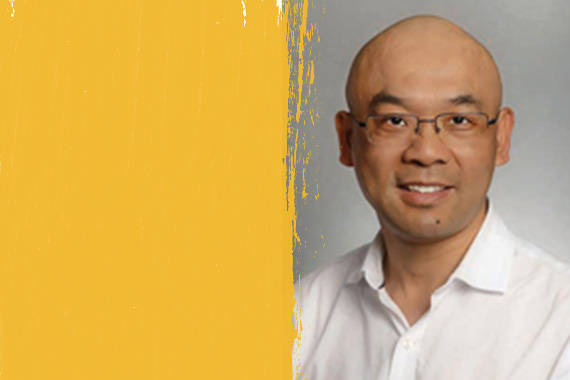
Mizzou Engineer lends protein prediction expertise to climate change studies at Danforth Plant Science Center
An inter-institutional research team is using the power of computational analysis to pinpoint which plant genes confer resilience against rising temperatures that threaten global food supplies in the coming decades. Mizzou Engineering Professor Jianlin “Jack” Cheng — one of the first scientists in the world to use deep learning, a powerful artificial intelligence technique, to predict protein structures — adds a unique perspective to the work. Since 2018, he’s been collaborating with Dr. Ru Zhang, a plant scientist at the Danforth Plant Science Center in St. Louis, to leverage computational tools in the study of plant genes.
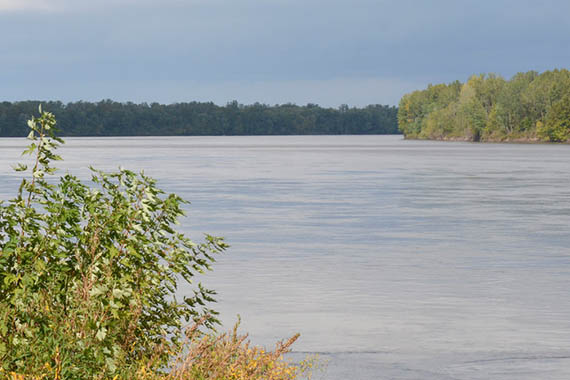
Missouri Water Center works to monitor water quality, quantities; train students
When it comes to water, there are a lot of stakeholders. Not only do we all need access to clean water—including fish and wildlife—but local economies rely on lakes and rivers for agriculture and tourism. When there’s not enough, droughts can destroy a year’s worth of crops. Too much can cause flooding that devastates communities. With those factors in mind, Mizzou established the Missouri Water Center a year ago, merging two former centers.